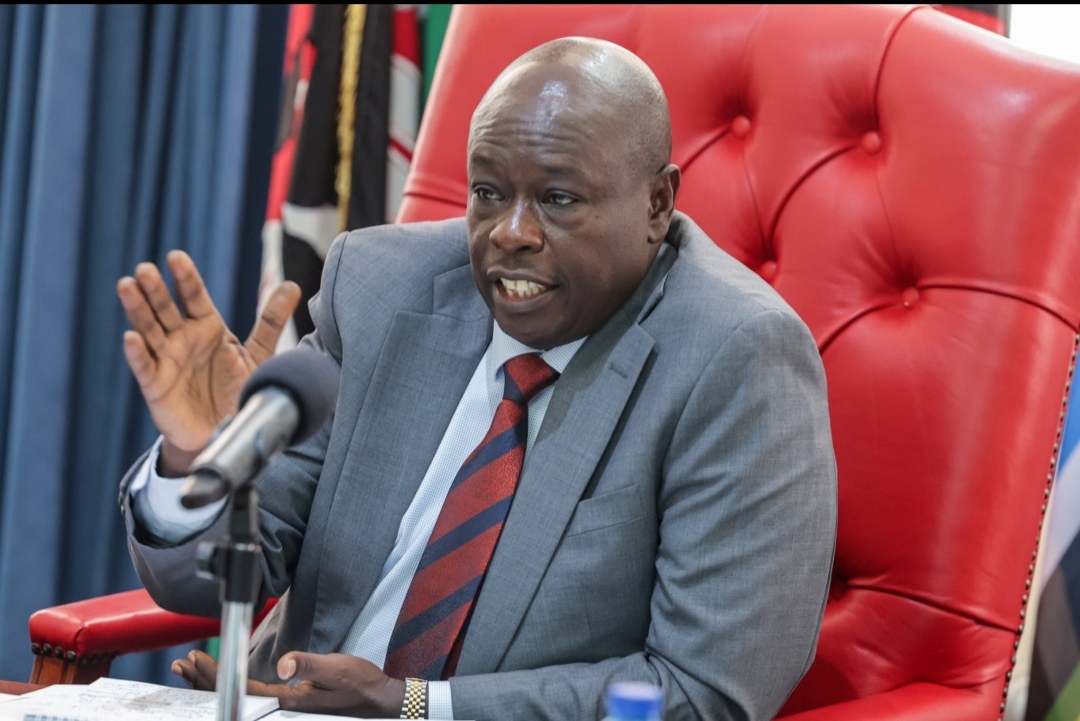Betty Caplan Kenya is my home
She was born in Australia but has lived abroad all of her adult life – 30 years in the UK and in 16 Africa, in addition to travelling and working in several other locations around the world. Betty Caplan candidly talks about her life, her passion for teaching and writing and her love for Kenya – her new home – with EDNA GICOVI.
Her short, wispy silvery hair frames her pleasant face. She wears an infectious smile and from her lively gait, it’s plain to see that she is in good shape despite her 67 years. And why wouldn’t she be? She says that the first thing she does after finding a place to stay is to look for a gym. She also happens to be a trained contemporary dancer. Her melodic, accented voice and sunny disposition fill the room as we chat during the interview.
Betty Caplan is a citizen of the world who has found a home in Kenya. Her Jewish parents relocated to Melbourne in Australia to escape Nazi atrocities during the Holocaust. “To get into Australia at that time, you needed a sponsor and my father had an uncle in Australia who sponsored him. That’s why I’m alive and here to tell my story,” she says. The rest of her extended family who perished in concentration camps were not as lucky. She has an older brother, Zev, seven years older, who lives and works in the US as a neurophysiologist.
Betty describes life in Melbourne as rather boring, adding that back then it was one of those places most people wanted to leave when they grew up. “A lot of us dreamed of going to London. Life was happening there. Most of those who left however, did go back to Australia much later,” she says.
Her childhood was very sheltered and without much external exposure. When she started school she could already read and was thus moved a class ahead. She completed high school at the age of16 and joined college soon after. This somewhat troubled her as she felt she wasn’t mature enough to be in college. She graduated at 19 after doing a BA in English and literature and a diploma in education. It was not her dream to be a teacher but got into the profession anyway. “There was nothing like career counselling back then,” she says. “Girls were usually expected to find a nice husband to look after them,” she adds, an amused expression on her face.
Making a life in London…
Betty got married to Harold Caplan at the tender age of 19. She lived with her husband in Melbourne until she turned 21 after which they moved to London. They both loved music, opera, ballet, and the arts generally, which were huge in London. She never saw her father again after leaving Melbourne. He, unfortunately, passed on about two years later, while her mother passed on in 1984. They both suffered from heart problems.
The move to London was good for her. She lived there for the next 30 years, making a living off teaching and writing. She worked in very difficult inner city schools that specialised in children with behavioural problems. Nonetheless, this was not a problem for her, as she loves challenges and enjoyed teaching, which she did for the better part of her time in London.
Being a lover of the arts, Betty often went out to watch plays and films, among other performances in London’s entertainment spots. She also loved writing and had been doing a lot of personal writing for a long while. In fact, she had a diary at home where she regularly wrote reviews of the films and plays she watched. A friend once suggested that she should send her reviews to a newspaper though she never considered it at the time.
Sometime later, one of her reviews was published in a local newspaper and this gave her an incentive to send her work to The Guardian, a London newspaper. They loved her work. This marked the beginning of her stint in freelance writing, which she says was rare in the 80s. “Most people working in newspapers at the time were permanently employed,” she says.
Her main focus was features on social issues, the arts, education and gender. She went on to write for various newspapers and publications in the UK including The Guardian, The Guardian Weekly, the New Statesman, the Financial Times, and the Times Educational Supplement. She also appeared on television a couple of times to talk about theatre.
From London to Africa…
From London, she moved to Zambia in 1996 through Volunteer Services Organisation (VSO), an international development organisation that works through volunteers to fight poverty in developing countries. She worked as an English teacher at a local high school in rural Zambia in a location, she says, is very much like Machakos. “The culture shock was enormous!” she says, adding, “I was very homesick. There were no phones and I was not in contact with my family.”
Though miserable at first, with time she was able to cope and build a rapport with her students, whom she became very attached to. They became like her family. While in Zambia, she still found time to pursue her writing passion by writing for the Times of Zambia. Her contract ended after two years and she went back to London.
London just wasn’t the same for her after her experience in Africa. She couldn’t settle. “Being in Zambia had changed me. I had been exposed. I couldn’t go back to my previous life,” says Betty. It was also difficult for her to get another job after being away for two years. After 10 months of an unsuccessful job-hunt, she decided to go back to Africa, this time Kenya. She applied for and got a job as an English teacher at an international school in Kenya. She had heard people talking about Nairobi and had been curious about the place.
A home in Kenya…
She came to Kenya in 1998 and fell in love with the country. It was much more dynamic than Zambia and felt a lot like home to her. She taught English in three international schools, worked as an education consultant, and taught contemporary dance to a young company called Kenya Performing Arts Group. She also ran workshops on the teaching of literature to teachers and to disadvantaged children. She also conducted classes in theatre in development for students, focusing on particular problems like how to deal with sexual harassment in school. She also did editing, report writing and proof reading for various publications.
She found a way to involve herself in a great deal of freelance writing. She has written for several newspapers in Kenya, including the East African, The Standard, and The Daily Nation. She writes on a number of subjects, mainly the arts, education, gender, social and environmental issues. Currently, she writes opinion pieces for the Star newspaper where she has a monthly column, Letter from Istanbul. She has also worked with publishers in Kenya producing textbooks and audiotapes, which assist teachers all over the country to integrate language and literature in English classrooms.
Betty left Kenya in 2008 following the post-election violence and went back to Australia where she stayed for close to two years. “I had been away for 43 years and Australia just wasn’t home anymore,” she says of her time there. In spite of this, she did a course in training and assessment in English, which enabled her to secure a job in Istanbul, Turkey. “I loved being in Istanbul. It’s a beautiful city,” she says, pausing briefly. “But it’s not Kenya,” she adds contemplatively.
Betty is back in Kenya after working in Istanbul as an English trainer in a language school for seven months. She may be heading back to Turkey at the end of this year if her contract is renewed. Meanwhile, she intends to stay and enjoy Kenya. For her this is home. “I’ve met so many wonderful people here over the years, and made so many friends. I also love the social scene,” she says, adding that even if she continues to travel and work in different countries as she always has, she will make Kenya her base.
“Sometimes where you are born does not feel like home. You may end up finding that place that feels like home to you very far away from your actual home,” she says of Kenya. At the moment she is trying to polish her Swahili.
A fragmented family…
Betty got divorced in 1986. She says that her marriage began falling apart long before the divorce took place. “We just grew apart. I think this has happens in lots of marriages, only that some never get through it,” she says. “I’ve heard of couples that live together without talking to each other and I could never be like that,” she adds.
Her husband felt that they could stay together because of the children but Betty knew that this wouldn’t work. This, according to her, makes things between the couple worse, and may affect the whole family to an even larger extent. Her two daughters were seven and four when the divorce took place.
After the divorce, she had full custody of the children, though her husband also spent time with them occasionally. “It was terribly difficult. Of course I was with them most of the time but they would be unhappy with me many times because daddy was the good one who let them do as they pleased while I disciplined them,” Betty recalls.
Their teenage years were even more difficult. “The girls were very rebellious and distant. They did come around in their twenties but then I was travelling and working away from them during this time,” she says. As a result, Betty is not close to her daughters.
The period following divorce was a thorny time for her but she maintains that she never poisoned her daughters against their father because he was their father regardless of any differences that existed between the two of them. Her husband remarried but regrettably passed on in 2003 from a brain tumour. Betty never remarried and is not seeing anyone at the moment. She feels marriage may not be for everyone.
Her first-born daughter, Nina, is married with three daughters and just started training as a councillor while the other daughter, Danielle, works as a journalist. They both live in England where they were born. “That’s home for them,” says Betty.
“I love my children very much and I’m sad that I’m not part of my grandchildren’s life. I can’t afford to travel and see them as often as I would like to, and they can’t as well,” she says reflectively. She hopes their relationship will improve, even though they’re oceans apart. For now, she says, friends have become her family.
“I don’t know what will happen tomorrow. I’m here now. I live each day as it comes. If I die tomorrow, I will have had a very good life,” she says in a carefree manner regarding the future. She intends to keep working and following her artistic passions.
Published on June 2012




